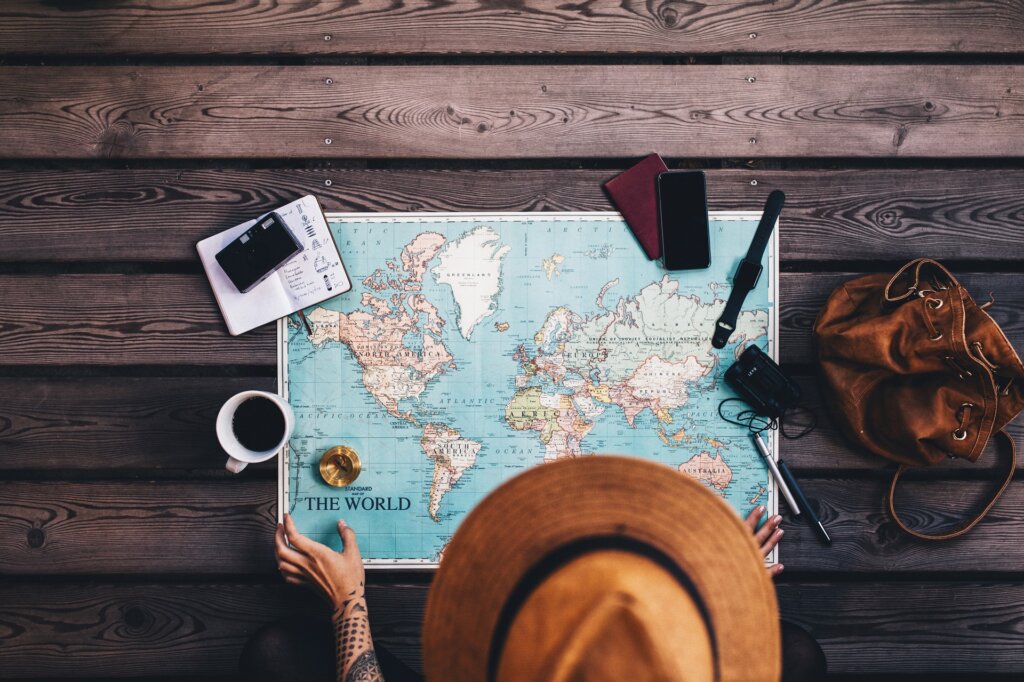You probably invest a moment in every day making use of the art of dolce far niente, and don’t even know it. This concept could be said to be complementary to procrastination. Despite the fact that dolce far niente and procrastination both mean ‘not doing anything’, the former is totally voluntary and beneficial, unlike procrastination. Today, we want to talk about its importance.
This philosophy comes from Italian culture. Italians know well that days are often overloaded with tasks. Therefore, they consider that dedicating time to actions as unproductive as having a drink with friends, watching tv, or simply lying on the sofa, can be extremely beneficial.
This recipe for promoting well-being can help you perceive your day as ‘more than just another day’. In fact, when you take a moment to reflect, relax, or socialize, you’re taking care of your health. Moreover, the result of this self-care is often the perception of happiness.
“If you feel that sometimes everything around you is complicated and you can’t find a solution… stop! Breathe and give yourself a minute to relax.”
-Ximena Morales-
Practicing dolce far niente makes you happy
This Renaissance secret based on healthy leisure invites you to take a break. It pushes you to relax and search for pleasure. But, what exactly is relaxation? Some authors claim it can be defined in two different ways (Etxebarría, 2000):
- It’s the moments when you feel free. This definition suggests you decide when and where you’re going to enjoy these moments. You make a conscious and voluntary choice.
- The activities you do for pleasure. The feelings of well-being you experience from doing rewarding tasks have the potential to recharge your energy by making you feel better.
“Leisure in the original sense, genuinely passive leisure, requires of us an abandonment and a confirmation that we exist.”
-Antonio García-Bellido-
However, the concept of dolce far niente goes beyond free time and the activities you undertake. It implies flowing with what you do, knowing that you’re absorbed in idle tasks. It alludes to the subjective perception of well-being, to the experience that arises from knowing that you’re involved in activities that relax you.
Practicing the ‘art of enjoying life’ makes you feel that the weight of everyday life diminishes. It’s a state of enjoyment. It’s pleasant, comfortable, and almost narcotic. So, how can you put it into practice?
Some secrets
This sought-after conscious and voluntary kind of relaxation is closely linked to good mental health. Whether it’s understood as the time you dedicate to yourself, certain activities you carry out, or the subjective experience of joy, dolce far niente is one of the keys to experiencing life with better health, in a more positive way, and with greater motivation. This is basically because it allows you to free yourself from stress as a lacerating agent of your well-being.
Dolce far niente is an attitude that allows you to enjoy relaxing and rewarding activities.
Surround yourself with people who make you happy
Dive into your memories. What makes you feel good on a regular basis? Among the activities that provide you with well-being is spending quality time with the people you love (Díez, 2022).
Being with your friends or with your partner are activities that provide you with really enjoyable and relaxing experiences. In addition, they allow you to strengthen your relationships with them and feed the bonds of attachment that unite you. This means you’re able to surround yourself with intimate and profound experiences.
“I think people who vibrate at the same frequency, vibrate towards each other.”
-Erykah Badu-
Dive between the pages of amazing stories
Reading is an activity that promotes your well-being. In fact, when you read, your brain is more activated. For example, the primary visual area, a structure that borders the calcarine fissure of the occipital lobe, is intensely activated when you immerse yourself in the stories of your favorite characters. This means that, when you read, you can be and feel, almost literally, the protagonists of your favorite novels, because you’re ‘seeing’ the stories you’re reading. Among the benefits of reading is relaxation.
“No two persons ever read the same book.”
-Edmund Wilson-
Travel
Traveling is one of the secrets that this Italian concept brings. When you travel, you immerse yourself in cultures that are potentially different from your own. You benefit by getting to know yourself better. You also grow personally.
“Traveling leaves you speechless and then turns you into a storyteller.”
-Ibn Battuta-

The art of small pleasures
If you’re interested in flowing with life and taking some time to ‘do nothing’, you can also try savoring the small moments of everyday life. The kinds that are ‘deliciously unproductive’. We suggest an exercise.
Make yourself a coffee or tea, whatever you prefer. Be careful that it isn’t too hot. Take the cup in your hands. Now, feel how rewarding the heat is in contact with your skin. Then, look at its contents: what color is it? Get a glimpse of its nuances.
Bring it to your lips and take a sip. Is it sweet? Bitter? Pleasant? Disgusting? Take a sip again. Taste it and enjoy the moment. It’s yours. It’s time that you’re dedicating to yourself, to ‘doing nothing productive’. You’re practicing a mindfulness exercise. You’re also practicing the art of dolce far niente. How does it feel?
As we mentioned earlier, this practice consists of dedicating a moment of your day to being unproductive on a voluntary basis. And, to be aware of the fact. In fact, this art is as old as we are, as human beings. However, we have a tendency to overlook it. But, when we relegate unproductive leisure to the background, we run the risk of accumulating stress.
“Dolce far niente, unproductive leisure can bring balance to our lives. It is an opportunity to live life the way you want to live it.”
-Susana Gorbeña Etxebarría-
The post Dolce far niente: The Art of Enjoying Doing Nothing appeared first on Exploring your mind.



















Comments